Making the Most of Every Chance: Ryan’s Inspiring Rollercoaster Ride

Curious about how to turn obstacles into opportunities? Wondering what it is like to study at Campus Fryslân, pursue a Pre-Master’s and a Master’s in Sustainable Entrepreneurship, or live in the Netherlands as a non-EU expat? Interested in learning how to build stronger social and professional connections? Then Ryan’s story is exactly what you need to read. His journey is not only engaging and relatable, but also full of insights that can inspire your own path. A story of resilience, optimism, and growth: a read that might just spark your next move.
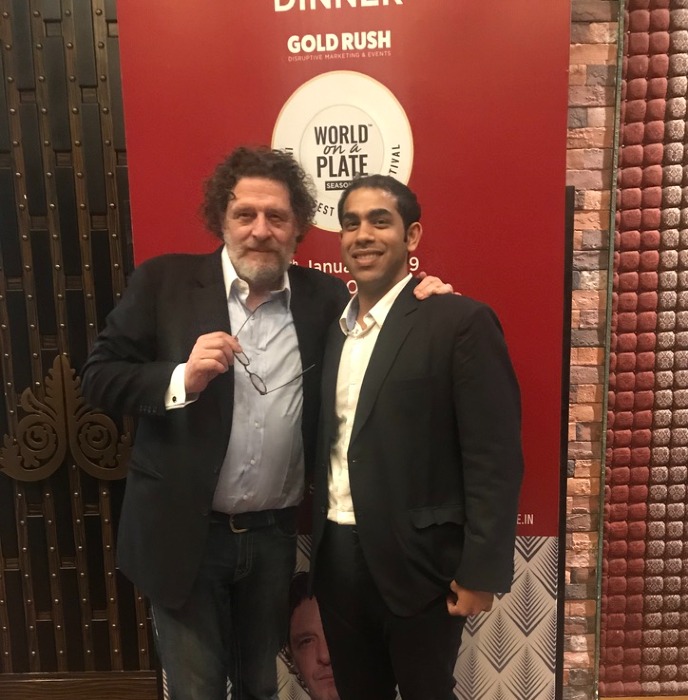
Hi Ryan, you have such an interesting story. Can we go back to the start? Who are you, where do you come from, what is your background, and how did you land at Campus Fryslân?
I’m originally from Bombay, where I graduated from a top Jesuit high school and earned a BSc in Hotel Management. I spent nearly five years working in services marketing and communications, but the pandemic forced me to reflect. I became both curious and frustrated about how businesses could operate comfortably while setting their conscience aside. That realisation pushed me to find a way to connect business with values.
That search led me to Campus Fryslân’s MSc in Sustainable Entrepreneurship, ironically, the first programme I applied to, but I missed the deadline. I started a top-up bachelor's in Apeldoorn, then pursued a Pre-MSc in Marketing Analytics & Data Science at RUG. Yet something kept pulling me back to sustainability. Eventually, I transferred into Sustainable Entrepreneurship, where it felt like coming home.
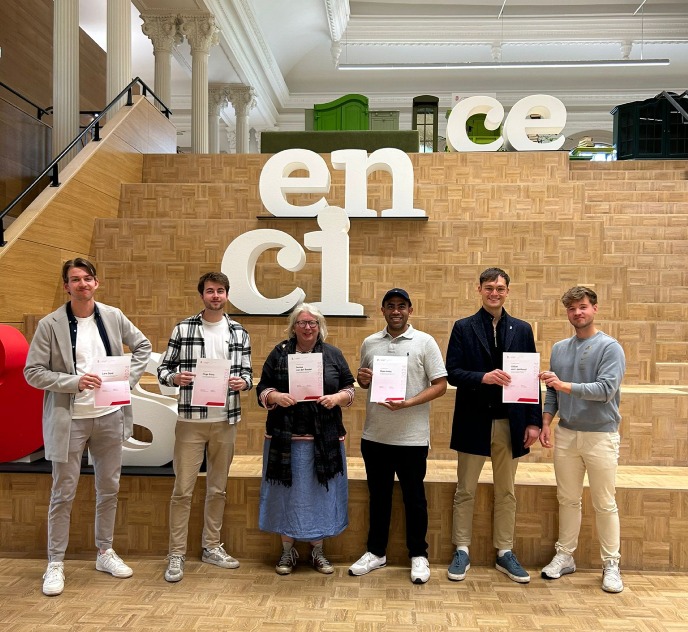
What was the Pre-Master’s in Sustainable Entrepreneurship like for you, and how did it prepare you for the master’s?
It was a reinvigorating experience that reshaped how I approach problems. Coming from a practical, results-driven background, I initially focused on quick solutions. The Pre-MSc challenged me to slow down, embrace systems thinking, and question underlying assumptions. It taught me how to frame complex problems and move beyond surface-level answers, a mindset that became essential for the master’s.
How has your experience in the Master’s in Sustainable Entrepreneurship been overall?
It’s been incredibly eye-opening. The master’s programme doesn’t just teach sustainability, it teaches you how to think. From analysing EU policies to dissecting real-world business models, I’ve learned to navigate the complex intersections where people, planet, and profit must coexist rather than compete. It challenged me to think critically, systemically, and with purpose.
Can you tell us more about the companies you have been working with during your studies? How did those opportunities come about?
Alongside routine freelance work, I collaborated with several organisations that shaped my academic and professional journey.
I worked part-time with BeStart, a climate tech accelerator in Fryslân, where I helped build partnerships across the regional startup ecosystem. That experience gave me insight into how innovation can scale when supported by the right networks.
Mariken Gaanderse, Director of BeStart, about working with international students like Ryan:
❝At BeStart, we consider international students like Ryan a tremendous asset, not only to our organisation, but also to the startups we support.
Many of these ventures operate in an international context, often led by diverse founding teams with English as their working language.
For them, access to talented, globally minded individuals is essential. International students bring fresh perspectives, creativity, and a drive that aligns with the ambitions of the startups we work with.❞
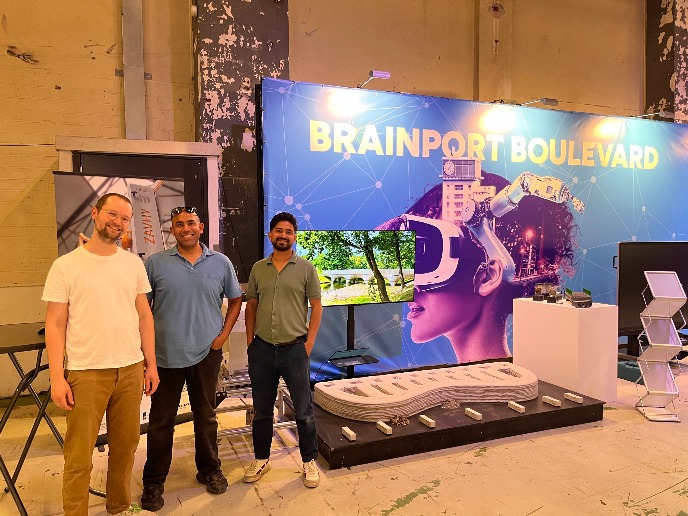
For my thesis, I joined Zavhy, a pioneering company using 3D concrete printing to reduce carbon emissions in the construction sector. I was fortunate to be part of the team during a pivotal phase, contributing as they secured their €1 million funding round, a major milestone for both the company and the low-carbon innovation space.
Says Zeeshan Yunus Ahmed, Founder and CEO of Zavhy, about Ryan and collaborations with students:
❝Beyond his academic contribution, Ryan brought curiosity, professionalism, and a clear drive to create real-world impact.
Collaborations like this are essential for bridging the gap between research and practice, thereby strengthening the ecosystem of sustainable solutions we’re building here in the Netherlands.❞
During the Pre-MSc spring block, I also joined the MARUG Marketing Consultancy Group, working as a data analyst for DVJ Insights, a marketing research firm based in Utrecht. This project allowed me to apply data-driven thinking to real-world business challenges, bridging technical skills with strategic decision-making.
Interestingly, I discovered BeStart through the Campus Fryslân newsletter and met Zavhy’s founders, Zeeshan and Taco, at the Innovate Friesland event co-organised by my BeStart supervisors, Mariken and Siska. These roles gave me direct exposure to the intersection of innovation, entrepreneurship, and sustainability in the Netherlands.
Which hands-on projects did you take part in throughout the master’s, and what did you learn from them?
One of the most memorable projects was working with farming cooperatives in Fryslân to explore sustainability challenges within their supply chains. Through this, we applied theory to real-world data and aligned our findings with the Circulair Fryslân roadmap, helping to translate academic insights into actionable recommendations.
Outside the classroom, I participated in several Campus Fryslân workshops, including the Wetsus Business Development course, which deepened my understanding of how scientific innovation can be transformed into entrepreneurial opportunity. These experiences helped me connect sustainability theory with practical, system-level change.
Are there any specific topics or themes within sustainable entrepreneurship that make your heart beat faster?
The Performance course was a real standout for me. It connected all the dots, from impact reporting to ESG metrics and showed how to measure what really matters. Our programme director, Dr. Emma Folmer, taught us to move beyond surface-level claims and focus on quantifiable, credible impact.
This intersection of data, accountability, and sustainability makes my heart beat faster because these are the exact tools that organisations need to thrive in today’s climate-driven economy.
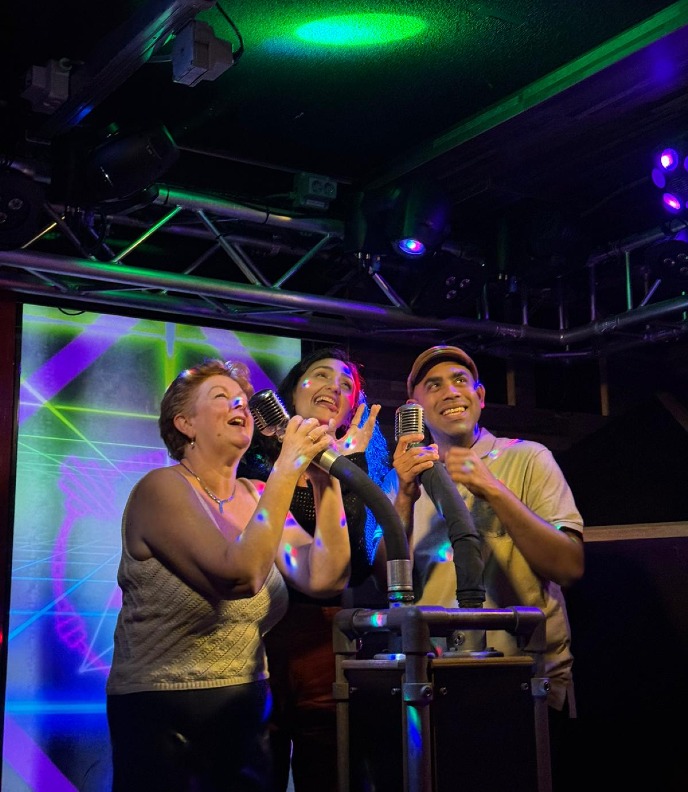
As a non-EU student, how was the journey of studying in the Netherlands? From finding the programme and applying, to relocating and settling in Leeuwarden, what was that like?
The admission process at Campus Fryslân was refreshingly efficient, and their listed housing partners are definitely worth checking out. That said, I actually secured a student studio in Groningen before even confirming my university admission, a leap of faith that worked out well.
Once settled, I stayed engaged and adventurous by participating in different communities across Groningen and Leeuwarden, from yoga and football to church groups, karaoke nights, and international associations like the International Welcome Center North (IWCN). Building those connections helped me find my place, both socially and academically.
You also acted as a student ambassador for the faculty. What motivated you to take on that role, and what was the experience like?
I still remember how overwhelming it was trying to navigate university websites, application forms, and all the paperwork, not knowing who to ask or where to turn. That experience motivated me to step up.
I first became Class Representative, and later a student ambassador, because I wanted to be the guide I wish I had, someone who could help others find clarity through the fog. It was rewarding to help prospective and current students feel supported, informed, and empowered in their own journeys.
Were there any challenges, academic, cultural, or personal, that you faced along the way, and how did you overcome them?
Academically, one of my biggest challenges was unlearning the idea of “the right answer.” The master’s pushed me to embrace critical thinking, uncertainty, and complexity, something that didn’t always come naturally at first.
On a personal level, being a non-EU student came with its own set of hurdles. Visa restrictions limited the internships and job options available to me, opportunities my EU peers could freely access. And yes, the 10x tuition difference for international students is still a shock to most people.
Some challenges, like the high cost of living or language barriers, don’t magically disappear; you just find new lanes to navigate them. For example, after a football injury right before my Pre-MSc led to knee reconstruction surgery, my rugby ambitions were off the table. So, I pivoted and joined a student-led golf association (G.A.G.V. Pitch) instead: recovery, with a twist.
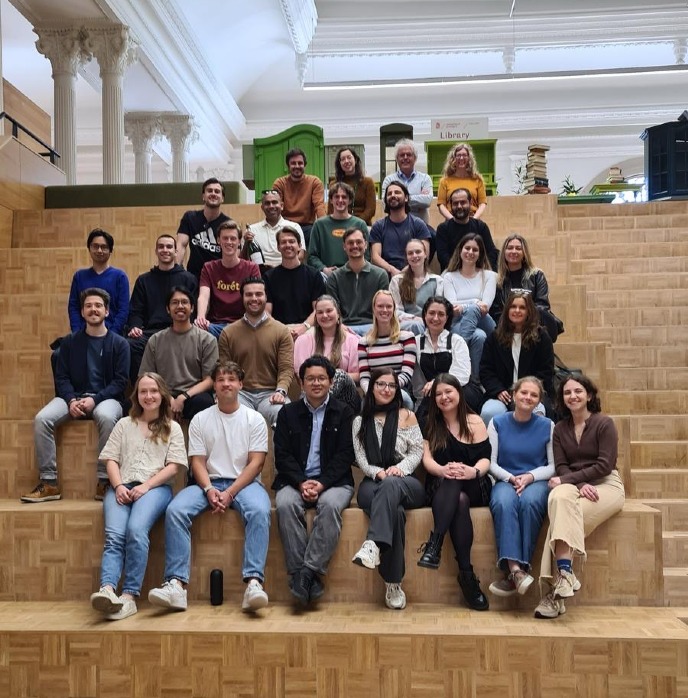
What kind of support or environment did you find at Campus Fryslân that helped you grow, academically or professionally?
The environment at Campus Fryslân is incredibly supportive. The faculty and staff are not only approachable but genuinely invested in your ideas and growth. I also appreciated the strong culture of student initiative. If you want to build something, pitch an idea, or take on responsibility, people will encourage and support you. It’s a place where curiosity is welcomed, and taking ownership is rewarded.
Have you written your thesis yet, or are you currently working on it? If so, what is the focus of your research?
Yes, I recently completed my thesis. My research focused on how companies in the Dutch concrete sector engage with sustainability and innovation through voluntary decarbonisation frameworks, specifically the Dutch Concrete Agreement.
I explored how factors like policy, market dynamics, and organisational culture influence the adoption of low-carbon innovation. The study offered insights into the barriers and enablers that determine whether sustainability transitions move from theory into real-world practice.
What are your key takeaways from this entire academic and professional journey so far?
One of my biggest takeaways is that qualitative insights often drive real, quantitative impact. Data is essential, but understanding the human and systemic factors behind it is what creates meaningful change.
I’ve also learned that collaboration trumps competition, especially in sustainability. Complex challenges can’t be solved in silos, they require shared knowledge, partnerships, and a willingness to think beyond short-term wins.
And perhaps most importantly, I’ve realised the race isn’t just about crossing the finish line first, it’s about making sure we bring others along with us.
What are your future ambitions, and what is next for you after graduation? Do you plan to stay in the Netherlands, continue with one of the companies you are involved with, or explore something else?
I’m keeping my options open, but ideally, I’d like to stay in the Netherlands and work at the intersection of innovation and sustainability, particularly with organisations driving systemic change.
My ambition is to grow into a role as a change manager or sustainability strategist within a mission-driven company that values both impact and action. I want to be part of solutions that don’t just sound good on paper, but deliver measurable progress.
On a personal level, I aspire to build a life rooted in family, purpose, and community, with a long-term goal of empowering underserved groups through financial education and meaningful work opportunities.
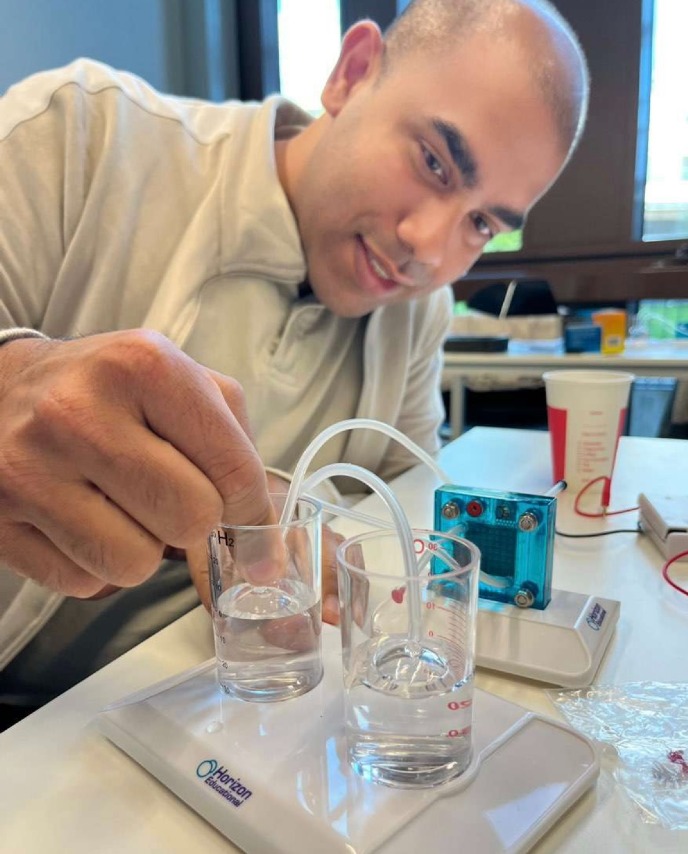
If you could offer one piece of advice to prospective or incoming students, especially International ones, what would it be?
Learn the language as it opens doors you didn’t even know existed. Even basic Dutch makes a difference when building connections or navigating daily life.
Also, be practical. Moving here without a registered address or some financial flexibility is risky. Please plan ahead where you can.
And finally, let your struggles lead to joy. Be authentic, embrace the uncertainty, and stay curious. You’ll be amazed at the opportunities that open up when you take that first step, or in my case, a leap of faith.
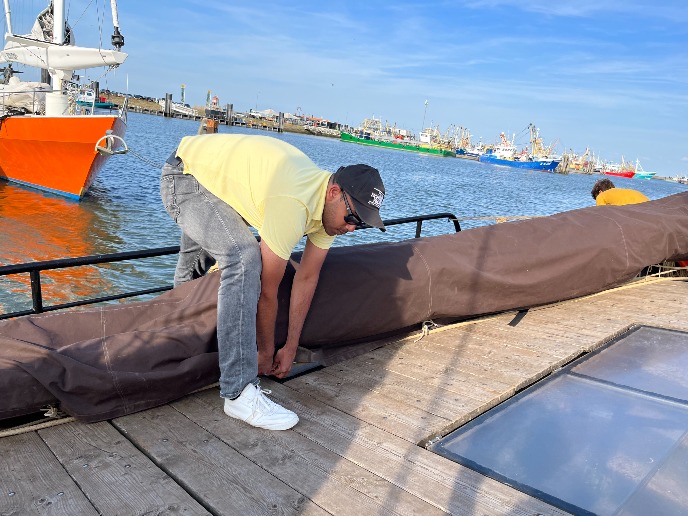
Beyond the Classroom
Some of the most valuable lessons happened outside lecture halls: on farms, islands, rooftops, and even over karaoke. I navigated student life by registering as a zzp’er for freelance work and discovering subsidies like zorgtoeslag and huurtoeslag.
I expanded my learning through the New Energy Academy, with visits to UNESCO in Paris and the EU Parliament in Brussels, and during the Wadden Sea Summer School sailing expedition. I volunteer with IWCN, helping internationals discover northern Dutch culture. To mark milestones, I try something new, like bungee jumping in Scheveningen to celebrate my pre-MSc. Growth often happens when you say yes to the unexpected.
Inspired by Ryan's journey?
Join the programme and be next in line for an inspiring opportunity!
Visit our MSc Sustainable Entrepreneurship webpage and sign up for our monthly newsletter. See you there!
About the author

Ryan Netto is an alumnus of the Pre-MSc and MSc in Sustainable Entrepreneurship at Campus Fryslân, University of Groningen. He was part of the 2023/2025 cohort of students (from Pre-Master's to Master's). In the same year, Ryan also served as a Campus Fryslân Student Ambassador and Class Representative of his cohort.

